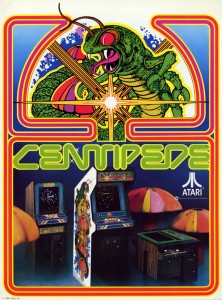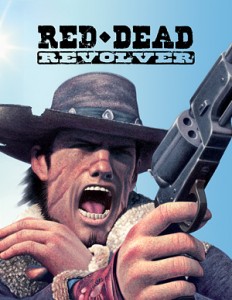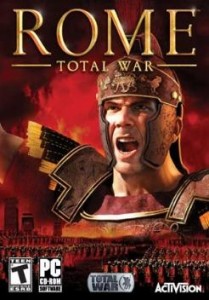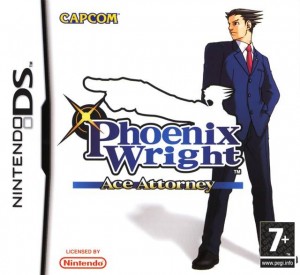400th played so far
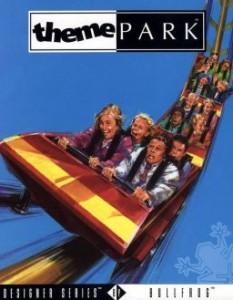 Genre: Management Simulation
Genre: Management Simulation
Platform: Various
Year of Release: 1994
Developer: Bullfrog Productions
Publisher: Electronic Arts
Oh Theme Park, how we’ve been looking forward to playing this. I remember playing this at a cousin’s place and being so impressed with it I wanted to see more. Because I had no other real way to play, instead I made big plans for my own theme parks, using half-remembered Theme Park rides together with ones I invented myself. For some reason, in particular I remember doing so with a cousin while staying over at my grandparents’ house.
Since then I’ve been able to play it more, and while in some ways it doesn’t hold up to my imagination, I’ve had a lot of fun playing it. Its sequels too, but for some reason the first always kept its magic. Let me explain…
Our Thoughts
First, the obligatory comments – yeah, the game looks dated. It’s clearly from 1994, and even then doesn’t feel as crisp, the semi-3D look just not paying off that well yet. We played a few sessions and each time it took a bit of time to get back into them, while at the end looking at another screen made everything seem small. High resolution didn’t perform as well by the way – possibly a side effect from the performance fixes in the version we had. On the whole it tries to look cartoonish, but the graphics aren’t quite high res enough to pull it off.
Still, there are some charming bits to it. Most important, while the short cutscenes of you going on a ride are simple, they feel like a reward in themselves. That was something I remember being the case two decades ago (we’re actually inside the haunted house!) and even now there was something fun about watching these videos. Silly, perhaps, but it’s one of those small rewards we like.
Ignoring the overly smooth graphics, it’s the simulation parts where the game obviously really shines. First, because of the light nature of the game – managing a theme park isn’t exactly world changing in the way something like SimCity is – the ideas in the game can be fairly light. The shops and attractions you build are all fairly fun, places that look like ones you want to visit and ride on, making it as attractive to you as a player as it should do to your game’s little visitors to your park. Nothing is unexpected, but it just shouts ‘fun’.
Underneath that is a tougher simulation. It’s not strictly the most difficult – we managed to get back from a deficit at one point by simply having expensive ice cream from a stall at the very entrance of our park – but requires some learning to get it right and can get overwhelming when a few too many things go wrong at once. It’s mostly about getting to a point where you make enough that money is not a concern.
I mean, take that previous example. Due to some careless playing earlier, we started the level with a $150k loan. The interest on this was pretty bad and we couldn’t build much. We started by building three of the starter shops at our entrance – coffee (which is nearly free to make so sells nearly completely at a profit), balloons (which are fairly popular) and centrally, ice cream. We added a lot of sugar to it because the punters apparently like that – having them buy more. Soon the stall became popular enough that we could charge five times the entrance fee for a cone ($500 or so each) and still had every visitor come by to buy it. While it still took some management, as well as carefully rationing out some other upgrades to attract more people, those shops got us out of debt and with a healthy constant income to continue. We did have to look at our stock levels – although coffee didn’t have any, ice cream needed to be ordered so we didn’t run out just as a busload of passengers arrived. We also had to keep our research up – more shops for a profit and better rides that would attract new visitors. Other research options were less important – intentionally low on staff, their training mattered less. Ride upgrades were more important, for capacity and reliability. And warehouse upgrades mostly meant we had to spend less time ordering supplies.
You’re constantly balancing those priorities, while also keeping an eye out on the future. Your final intention is to sell your park (at an auction) so you can put your profits into a new park, with higher value, probably a few more options, and most important, a higher difficulty. It’s a good way to keep momentum going with new starts and challenges while still having a link between levels – there aren’t entirely new starts.
It’s weird that the later sequels just don’t live up to the game. Theme Park World and Theme Park Inc seem to share an engine (with some refinements in between of course) with graphical upgrades, but with the single park approach and more artificial limits in place, don’t give the sandbox feeling the original gives you, nor the full simulation experience. It also seems to focus on a slightly more childish experience. Rollercoaster Tycoon, which we will get to at some point, feels closer to the original experience, but feels a bit too serious. Theme Park‘s mix is just original enough, featuring Bullfrog’s levity, as also seen in Dungeon Keeper, as well as their ability to make an engaging and seemingly expertly balanced simulation. It falls to the side of fun without feeling it compromises anything.
It’s a shame the only update that seems to have been made is the Nintendo DS one, as a PC-based update that smooths out the performance issues the game currently has (it requires some expert DOSBox manipulation to make it work as it should) would make the game a lot more pleasant, without bringing in the downsides other sequels (spiritual or not) have.
Final Thoughts
One of the weirder things that date this game, other than the poor path-finding exhibited by the customers, is the advert for Midlands Bank that appears in the beginning. Now, I am sure to anyone outside the UK this will have just been chalked up to a made up brand for a TV advert in the opening FMV, however this was an actual bank taken over by HSBC in the late nineties. I know it’s a weird point to raise but it really struck me.
A number of times when I was playing this I was thinking about how this was included and Theme Hospital (the better game in my opinion) but, when I thought about it, this actually makes sense. Theme Park was a trailblazer of a game, it launched a number of careers and (honestly) how many people looked at Theme Hospital and thought to make their own version? Not many.
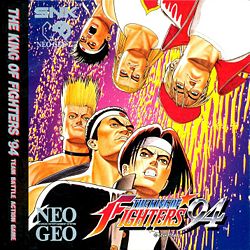 Genre: Fighting
Genre: Fighting